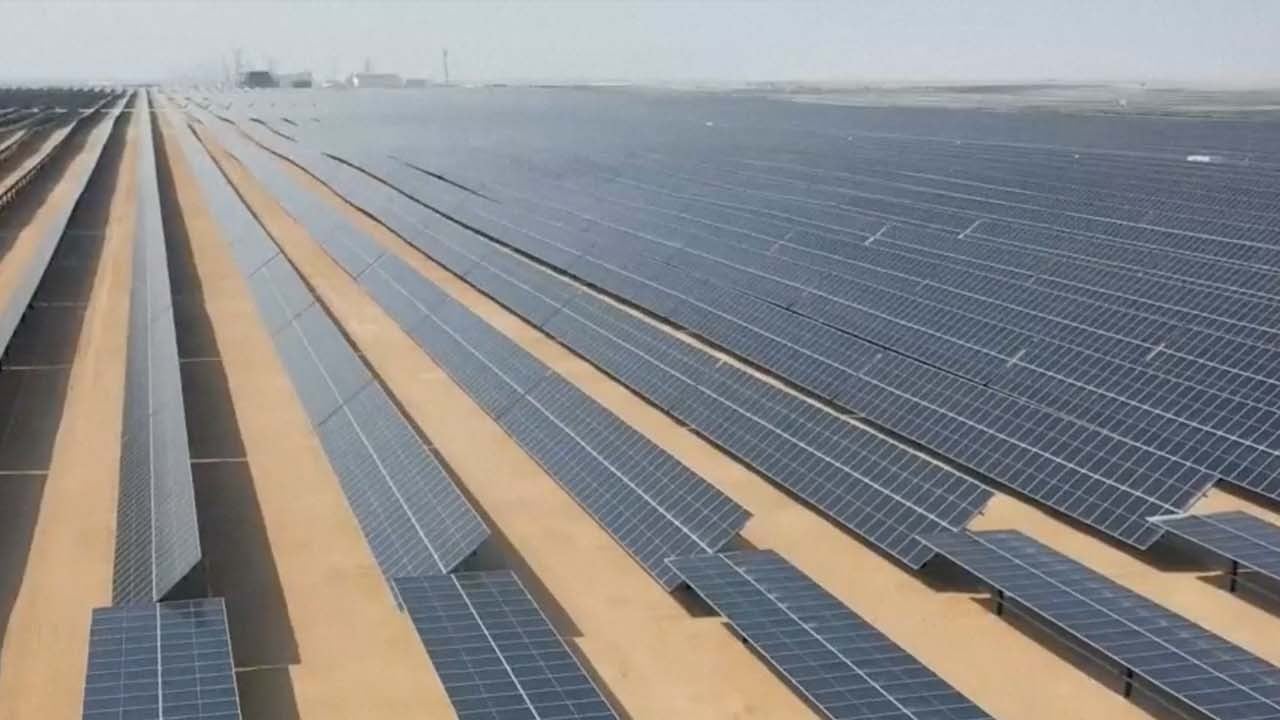
During Xi’s visit to Middle East, China and Saudi Arabia sign 34 energy and investment deals
- Saudi Arabian energy minister announces plan for regional centre for Chinese factories to further boost energy supply chains
- Saudi Aramco adviser says connecting the traditional oil industry and related enterprises with the digital economy is one of China’s strengths
Chinese President Xi Jinping met Saudi Arabia’s rulers on Thursday on his first visit to the kingdom since 2016.
He was received by Prince Mohammed bin Salman at the al-Yamamah Palace early on Thursday afternoon, before the pair sat down for talks, followed by a meeting between Xi and King Salman.
The total value of the 34 deals was not revealed. But the agency reported earlier that the two countries had aimed to sign 20 preliminary agreements worth US$29.26 billion.
Saudi Arabian energy minister Abdulaziz bin Salman also announced a plan to establish a regional centre for Chinese factories to further boost energy supply chains.
“The Kingdom of Saudi Arabia has strong and close strategic relations with China in many fields, the most important of which is energy,” the Saudi Press Agency quoted him as saying.
“The Kingdom of Saudi Arabia will remain China’s credible and reliable partner in this field.”
In an article Xi wrote for Saudi Arabia’s Al Riyadh newspaper, he vowed to enhance the comprehensive strategic partnership signed with Riyadh in 2016, and opposed any “external interference” in their ties.
“China will take this visit as an opportunity to strengthen its comprehensive strategic partnership with Saudi Arabia. We will continue to give each other understanding and support, and jointly advocate independence and oppose external interference,” according to an English version of the article released by Xinhua.
Why is Saudi Arabia looking to China to buy weapons?
China has been Saudi Arabia’s largest trading partner since 2013, while Riyadh has been Beijing’s biggest oil provider for years. In the first three quarters of 2022, imports from Saudi Arabia accounted for 17.8 per cent of China’s total oil imports. The Middle East was also the main beneficiary of belt and road investment in the first half of this year.
Victor Gao, vice-president of Beijing-based think tank the Centre for China and Globalisation and an adviser to Saudi Aramco, the world’s largest oil production company, said the number of deals signed between China and Saudi Arabia was as expected as the two fostered deeper energy ties. He said there would be more to come with other Arab and Gulf countries during the summits.
Gao added that the regional hub for Chinese factories would make it easier to manage personnel and funds to make manufacturing in Saudi Arabia more efficient. An integrated regional hub could also better connect different industries.
“Connecting the traditional oil industry and related enterprises with the digital economy is also China’s strength too,” he said.
Xi arrived in Riyadh on Wednesday afternoon for the four-day trip.
His plane was escorted by four Saudi fighter jets and six Saudi Hawk jets before landing at King Khalid International Airport. A purple carpet was rolled out for him as he was received by Saudi Arabian Foreign Minister Faisal bin Farhan bin Abdullah, Riyadh’s governor Faisal bin Bandar al Saud, Chinese ambassador to Saudi Arabia Chen Weiqing and other officials.
Is Xi Jinping’s trip to Saudi Arabia another step in SCO’s expansion?
On Wednesday, US National Security Council spokesman John Kirby said Xi aimed to use the trip to exert China’s influence in the Middle East, but the US policy towards the region would not be changed.

 - Kawala Xie.jpg?itok=NogZcyZ-&v=1661304068)

